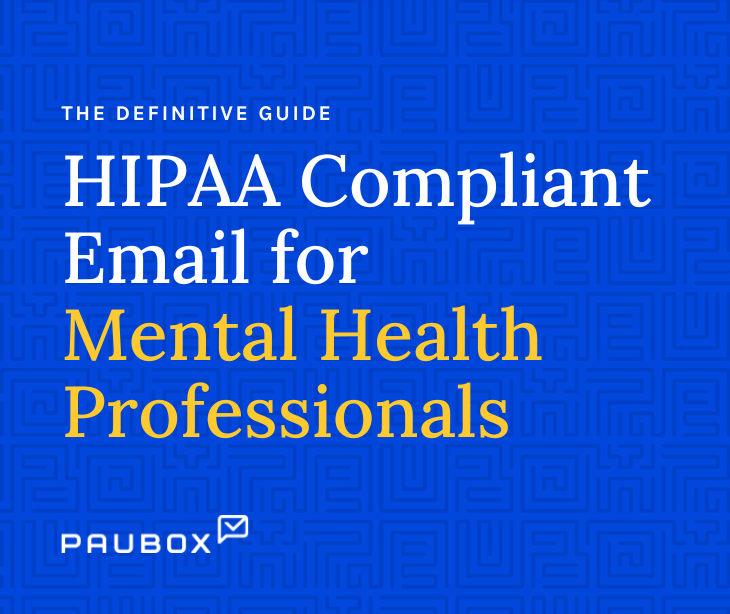2 min read
How email-based exercises can improve mental health long term
Caitlin Anthoney July 04, 2024

Providers can use HIPAA compliant emails to send personalized exercises and resources to clients, allowing for ongoing support and guidance outside traditional therapy sessions.
Emails for mental healthcare
Emails are an accessible and familiar way to deliver mental health interventions. Specifically, mental health providers often email guided imagery exercises, cognitive-behavioral therapy (CBT) techniques, and other interventions to improve patients’ mental health. It allows patients to engage with therapeutic materials at their own pace, promoting autonomy and self-care.
Additionally, email interventions can serve as a helpful supplement to in-person therapy sessions, providing continuous support between appointments.
Improving mental health long-term
Research on email-based exercises shows that “public health interventions conducted via email could improve mental health in an easily accessible and cost-effective way.”
Moreover, “Participants who completed the email exercises according to the instructions they were given, showed the most sustained improvement in psychological health at the two-year follow.”
So, incorporating email-based exercises into mental health interventions can promote long-term psychological well-being.
HIPAA compliance
While email-based exercises can enhance long-term mental health, providers must comply with HIPAA regulations to protect patient privacy. HIPAA compliant emailing platforms, like Paubox, offer advanced security measures, including encryption, access controls, and audit trails, to protect patients’ sensitive health information.
Additionally, staff members must be regularly trained on HIPAA regulations to prevent potential data breaches.
Implementing HIPAA compliant email-based exercises
- Assessment: Providers must do an initial assessment to understand the patient's mental health needs through a HIPAA compliant form.
- Regular delivery: HIPAA compliant emails can be automated, delivering exercises at regular intervals based on patient preferences. Providers can also use patients’ electronic health records (EHR) to automate HIPAA compliant emails, which can improve personal healthcare communication and patient satisfaction.
- Feedback and adjustment: Providers can also encourage recipients to provide feedback on the exercises, adjusting the email-based exercises as needed.
- Support and resources: HIPAA compliant emails can include additional resources and support, like secure links to mental health articles, videos, or online support groups, offering comprehensive support.
Personalized HIPAA compliant email-based exercises
Providers can also tailor their email-based exercises to patient needs for a more personalized approach to improving patient outcomes. Personalized HIPAA compliant emails can include exercises based on patient goals, like improving stress management.
HIPAA compliant emails can also help patients manage symptoms of anxiety, offering personalized resources and coping strategies directly to patients for a more effective and engaging approach to mental health support.
Additionally, these emails allow providers to track patient progress and make adjustments to ensure the exercises are effective.
Go deeper: Why personalized healthcare emails are better
FAQs
Do HIPAA compliant emails protect mental health information?
Yes, HIPAA compliant emailing platforms, like Paubox, use encryption and other security measures, so only authorized individuals can access the information.
Can HIPAA compliant emails include personalized mental health support?
Yes, providers can use HIPAA compliant emails to send personalized mental health resources, self-care tips, and educational materials directly to patients.
Can a mental health professional disclose patient information in an emergency?
Yes, HIPAA allows disclosure of mental health information without consent if necessary to prevent a serious threat to health or safety.
Subscribe to Paubox Weekly
Every Friday we'll bring you the most important news from Paubox. Our aim is to make you smarter, faster.




